Configuring OpenID SSO for PingOne
These steps show you how to configure the single sign-on (SSO) functionality using OpenID between
ManageEngine ADSelfService Plus and PingOne.
Prerequisites
Note:
- Do not terminate the session before the configuration is complete in both the identity provider
and the service provider.
- Please ensure that ADSelfService Plus is using HTTPS to ensure proper functioning of SSO.
- Log into ADSelfService Plus as an administrator.
- Go to Configuration > Password Sync/Single Sign On and click Add Application. Select
PingOne from the list.
Note: You can also use the search bar at the top-left of the page to search
for the application.
- Click IdP Details and select the SSO (OAuth/OpenID Connect) tab.
- Copy the Client ID, Client Secret, Issuer, Authorization Endpoint
URL, Token Endpoint URL, and User Endpoint URL information.
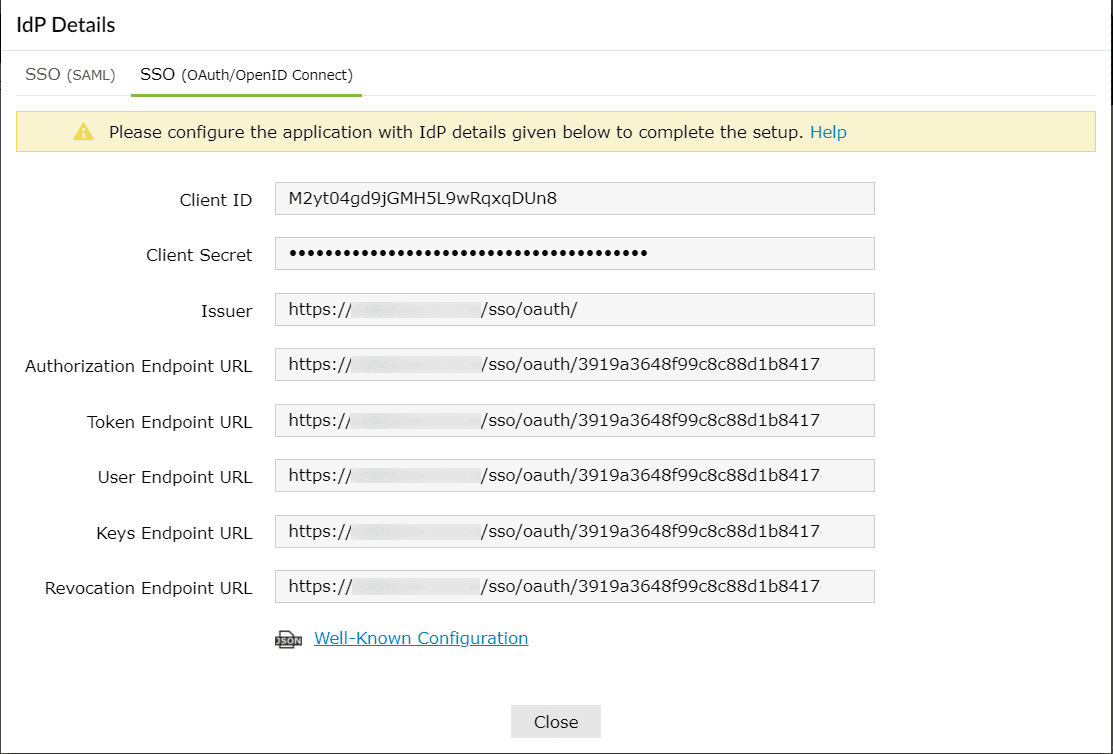
PingOne (service provider) configuration steps
- Log into PingOne with administrator credentials.
- Click the PingOne for Customers icon next to the End User Sandbox environment.

- Go to Connections > Identity Providers > Add Provider.

- Select OpenID Connect under Custom. Click Next.
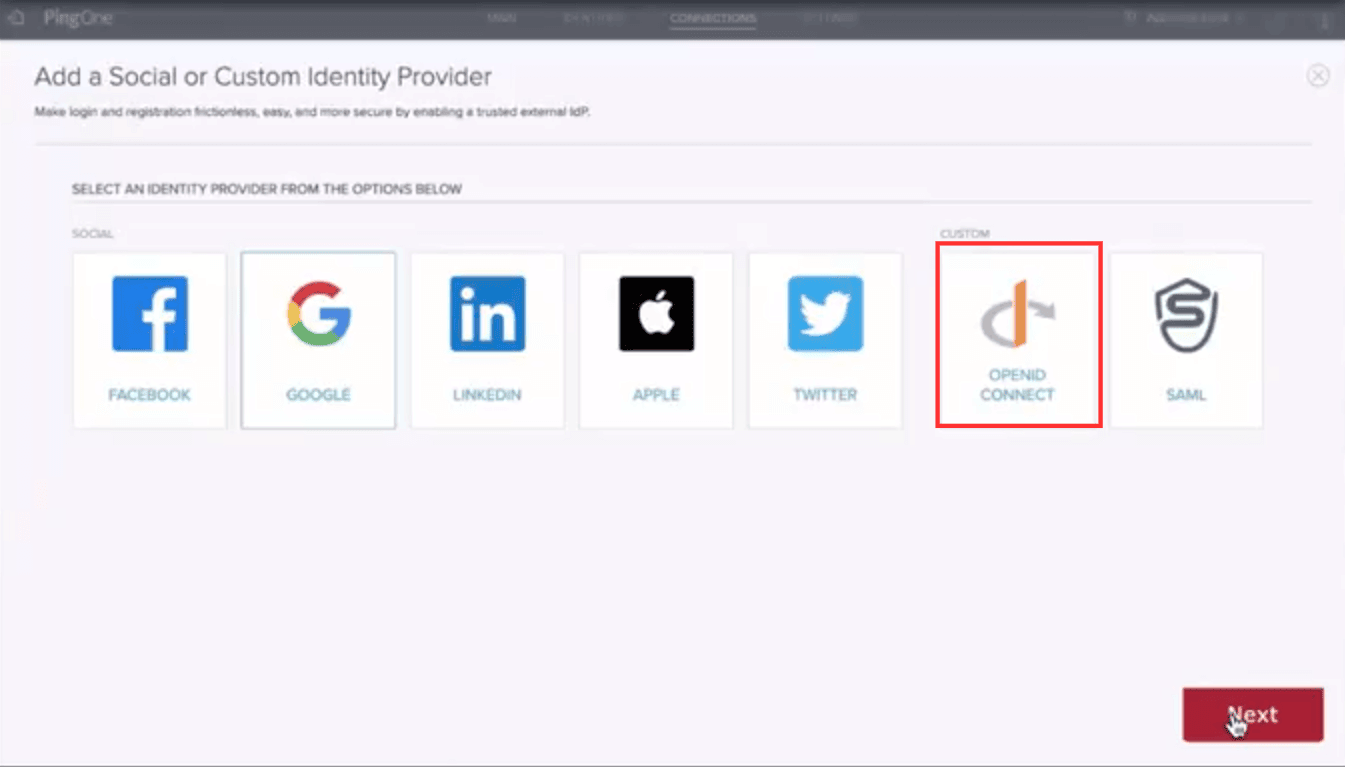
- Under Create IdP Profile, enter a suitable name and description for ADSelfService Plus. You
can also customize the icon and login button here.
- Click Continue.
- In the Configure OpenID Connect Connections page, copy the CALLBACK URL
as it will be required in a later step.
- Fill in the required fields with details copied in Step 4 of prerequisites:
- CLIENT ID: Client ID
- CLIENT SECRET: Client secret
- ISSUER: Issuer
- AUTHORIZATION ENDPOINT: Authorization Endpoint URL
- TOKEN ENDPOINT: Token Endpoint URL
- USERINFO ENDPOINT: User Endpoint URL
- JWKS ENDPOINT: Keys Endpoint URL
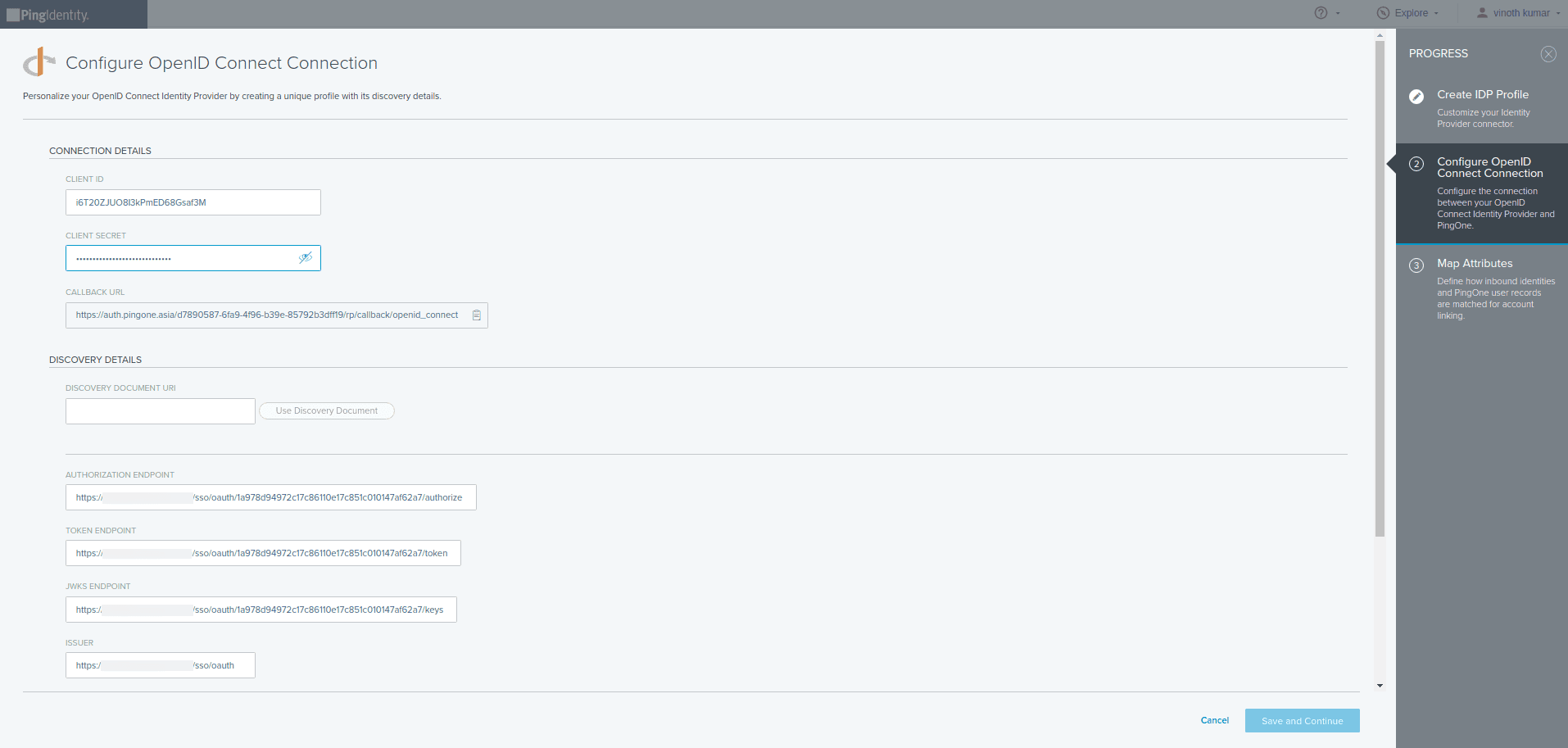
- Click Save and Continue.
- In the Map attributes page, click Save & Finish.
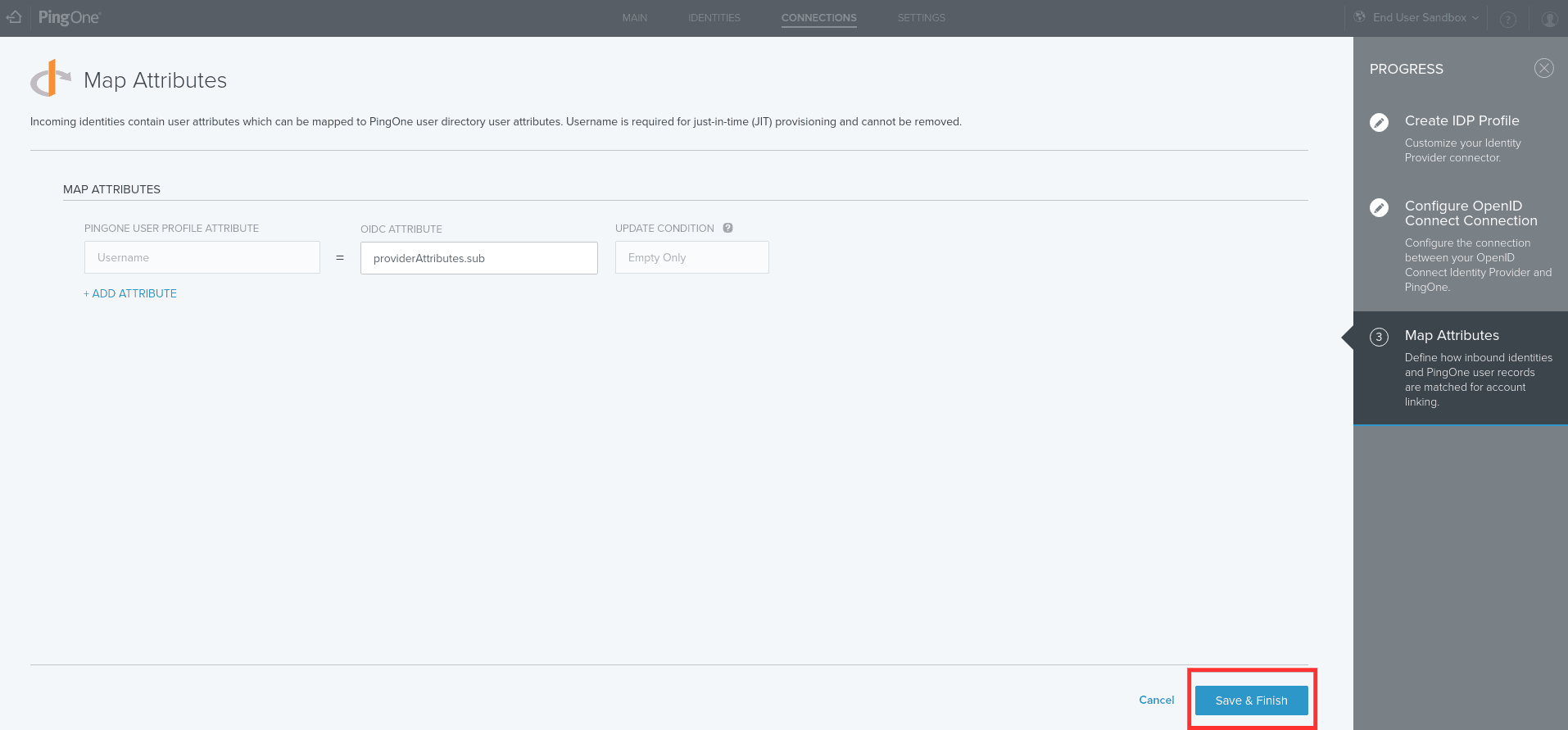
ADSelfService Plus (identity provider) configuration steps
- Switch back to ADSelfService Plus' PingOne configuration page.
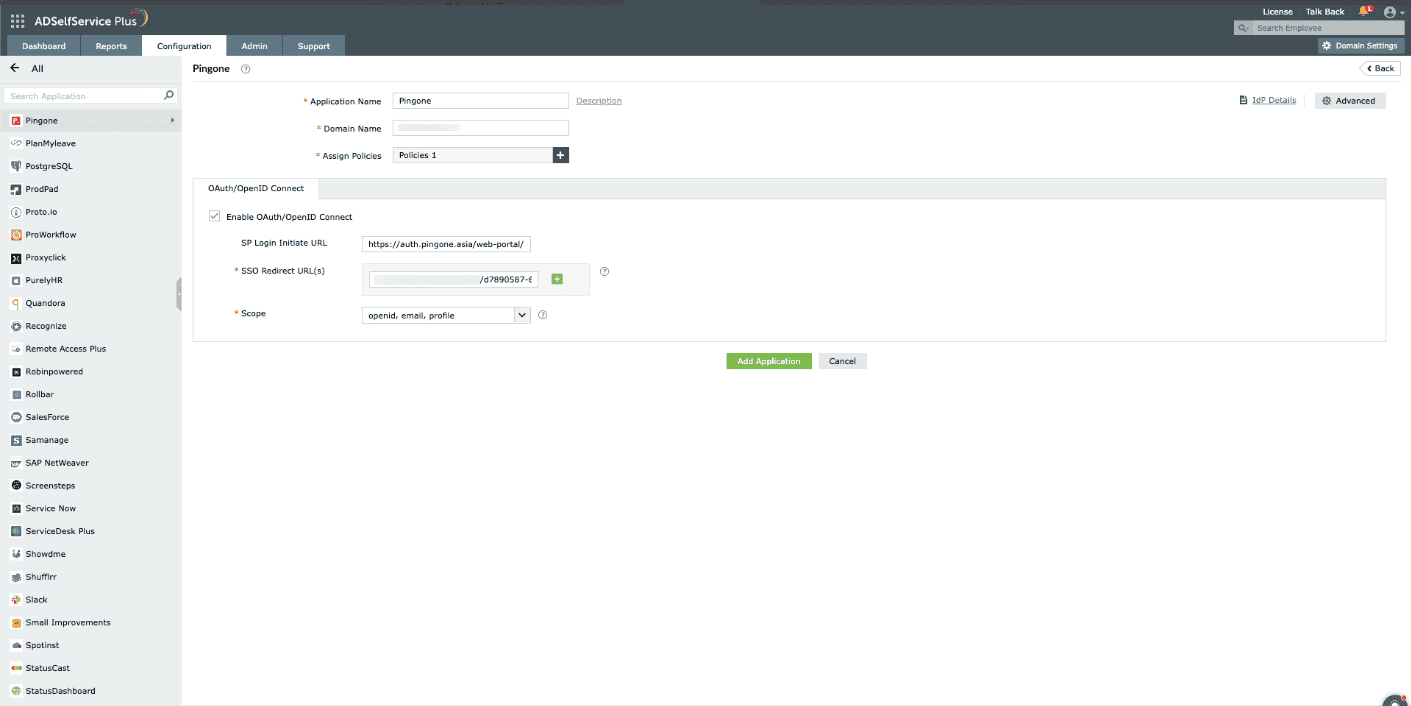
- Enter the Application Name and Description as per your preferences.
- Enter the Domain Name of your PingOne account. For example, if your PingOne username is
johnwatts@thinktodaytech.com, then thinktodaytech.com is your domain name.
- In the Assign Policies field, select the policies for which SSO need to be enabled.
Note: ADSelfService Plus allows you to create OU and group-based policies
for your AD domains. To create a policy, go to Configuration > Self-Service > Policy
Configuration > Add New Policy.
- Under the OAuth/OpenID Connect tab, select Enable OAuth/OpenID Connect.
- Enter the PingOne portal's login URL in the SP Login Initiate URL field.
Note: PingOne requires sign-in to begin from their login page, known as
SP-initiated login. Users are first directed to the PingOne login page, specified in the SP Login
Initiate URL field, after which PingOne redirects them to ADSelfService Plus (the IdP) for
authentication.
- Enter the Call Back URL copied in Step 7 of configuring PingOne in the SSO
Redirect URL field.
- Using the Scopes drop-down, select openid, which is the scope required for OIDC
authentication. You can also specify scopes such as profile or email to include extra user
information in the authorization request.
Note: Scopes specify the level of access the access token has. They are
typically included in the authorization request. Specify the scopes for which you wish to allow
access to your authorization token, using the drop-down.
- Click Add Application to save the configuration.
The Well-known Configuration URL in the IdP details pop-up contains all the endpoint
values, supported scopes, response modes, client authentication modes, and client details. This is
enabled only after you finish configuring the application for SSO in ADSelfService Plus. You can provide
this to your service provider if required.
Don't see what you're looking for?
-
Visit our community
Post your questions in the forum.
-
Request additional resources
Send us your requirements.
-
Need implementation assistance?
Try OnboardPro






